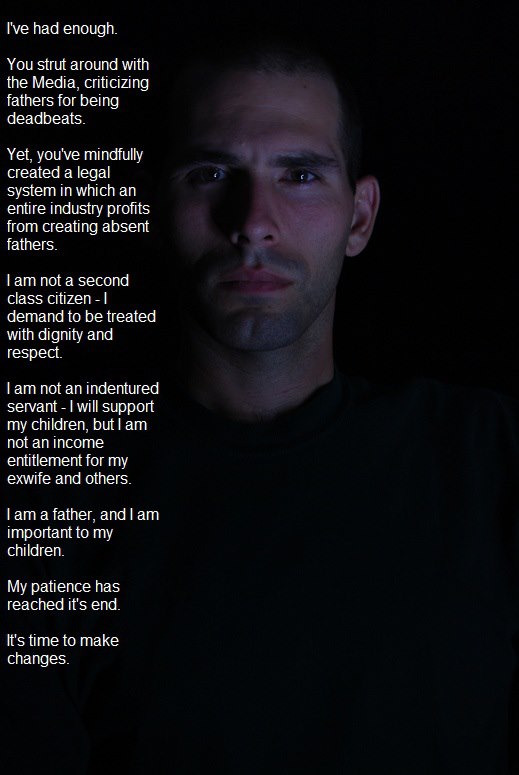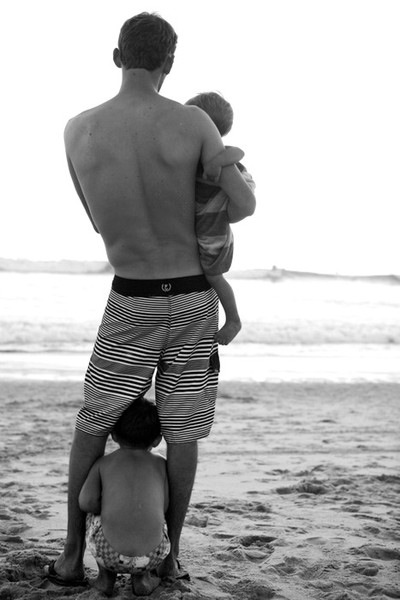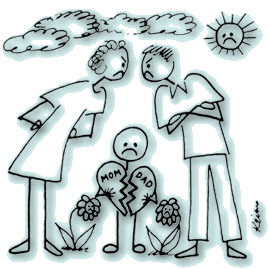As I continue to increase awareness of the importance of fathers, I stumble upon interesting columns. This is a great piece I just read in the NY times today and thought I’d share. A different take as to why fathers are important.
More food for thought.
Why Fathers Really Matter
By JUDITH SHULEVITZ – New York Times September 9, 2012
MOTHERHOOD begins as a tempestuously physical experience but quickly becomes a political one. Once a woman’s pregnancy goes public, the storm moves outside. Don’t pile on the pounds! Your child will be obese. Don’t eat too little, or your baby will be born too small. For heaven’s sake, don’t drink alcohol. Oh, please: you can sip some wine now and again. And no matter how many contradictory things the experts say, don’t panic. Stress hormones wreak havoc on a baby’s budding nervous system.
All this advice rains down on expectant mothers for the obvious reason that mothers carry babies and create the environments in which they grow. What if it turned out, though, that expectant fathers molded babies, too, and not just by way of genes?
Biology is making it clearer by the day that a man’s health and well-being have a measurable impact on his future children’s health and happiness. This is not because a strong, resilient man has a greater likelihood of being a fabulous dad — or not only for that reason — or because he’s probably got good genes. Whether a man’s genes are good or bad (and whatever “good” and “bad” mean in this context), his children’s bodies and minds will reflect lifestyle choices he has made over the years, even if he made those choices long before he ever imagined himself strapping on a Baby Bjorn.
Doctors have been telling men for years that smoking, drinking and recreational drugs can lower the quality of their sperm. What doctors should probably add is that the health of unborn children can be affected by what and how much men eat; the toxins they absorb; the traumas they endure; their poverty or powerlessness; and their age at the time of conception. In other words, what a man needs to know is that his life experience leaves biological traces on his children. Even more astonishingly, those children may pass those traces along to their children.
Before I began reading up on fathers and their influence on future generations, I had a high-school-biology-level understanding of how a man passes his traits on to his child. His sperm and the mother’s egg smash into each other, his sperm tosses in one set of chromosomes, the egg tosses in another, and a child’s genetic future is set for life. Physical features: check. Character: check. Cognitive style: check. But the pathways of inheritance, I’ve learned, are subtler and more varied than that. Genes matter, and culture matters, and how fathers behave matters, too.
Lately scientists have become obsessed with a means of inheritance that isn’t genetic but isn’t nongenetic either. It’s epigenetic. “Epi,” in Greek, means “above” or “beyond.” Think of epigenetics as the way our bodies modify their genetic makeup. Epigenetics describes how genes are turned on or off, in part through compounds that hitch on top of DNA — or else jump off it — determining whether it makes the proteins that tell our bodies what to do.
In the past decade or so, the study of epigenetics has become so popular it’s practically a fad. Psychologists and sociologists particularly like it because gene expression or suppression is to some degree dictated by the environment and plays at least as large a role as genes do in the development of a person’s temperament, body shape and predisposition to disease. I’ve become obsessed with epigenetics because it strikes me as both game-changing and terrifying. Our genes can be switched on or off by three environmental factors, among other things: what we ingest (food, drink, air, toxins); what we experience (stress, trauma); and how long we live.
Epigenetics means that our physical and mental tendencies were not set in stone during the Pleistocene age, as evolutionary psychology sometimes seems to claim. Rather, they’re shaped by the life we lead and the world we live in right now. Epigenetics proves that we are the products of history, public as well as private, in parts of us that are so intimately ours that few people ever imagined that history could reach them. (One person who did imagine it is the French 18th-century naturalist Jean-Baptiste Lamarck, who believed that acquired traits could be inherited. Twentieth-century Darwinian genetics dismissed Lamarckism as laughable, but because of epigenetics, Lamarckism is staging a comeback.)
The best-known example of the power of nutrition to affect the genes of fathers and sons comes from a corner of northern Sweden called Overkalix. Until the 20th century, Overkalix was cut off from the rest of the world, unreachable by road, train or even, in wintertime, boat, because the frozen Baltic Sea could not be crossed. Thus, when there were bad harvests in Overkalix, the children starved, and when there were good harvests, they stuffed themselves.
More than a decade ago, three Swedish researchers dug up records from Overkalix going back to 1799 in order to correlate its children’s health data with records of regional harvests and other documents showing when food was and wasn’t available. What the researchers learned was extremely odd. They found that when boys ate badly during the years right before puberty, between the ages of 9 and 12, their sons, as adults, had lower than normal rates of heart disease. When boys ate all too well during that period, their grandsons had higher rates of diabetes.
When the study appeared in 2002, a British geneticist published an essay speculating that how much a boy ate in prepuberty could permanently reprogram the epigenetic switches that would govern the manufacture of sperm a few years later. And then, in a process so intricate that no one agrees yet how it happens but probably has something to do with the germline (the reproductive cells that are handed down to children, and to children’s children), those reprogrammed switches are transferred to his sons and his sons’ sons.
A decade later, animal studies confirm that a male mammal’s nutritional past has a surprisingly strong effect on his offspring. Male rats that are starved before they’re mated produce offspring with less blood sugar and altered levels of corticosterone (which protects against stress) and insulin-like growth factor 1 (which helps babies develop).
Southeast Asian men who chew betel nuts, a snack that contains a chemical affecting metabolic functioning, are more likely to have children with weight problems and heart disease. Animal studies have shown that the effects of betel nut consumption by a male may extend to his grandchildren.
Environmental toxins leave even more florid traces on grandchildren and great-grandchildren. Vinclozin, a fungicide that used to be sprayed all over America (it’s less common now), is what’s known as an endocrine disrupter; it blocks the production of testosterone. Male rats whose mothers receive a fat dose of vinclozin late in their pregnancy are highly likely to be born with defective testicles and reduced fertility. These problems seem to reappear in up to four generations of male rats after the mother is poisoned.
THAT food and poison change us is not all that surprising, even if it is surprising how far down the change goes. What is unexpected are the psychological dimensions of epigenetics. To learn more about these, I visited the Mount Sinai Medical Center laboratory of Dr. Eric Nestler, a psychiatrist who did a discomfiting study on male mice and what he calls “social defeat.” His researchers put small normal field mice in cages with big, nasty retired breeders, and let the big mice attack the smaller mice for about five minutes a day. If a mean mouse and a little mouse were pried apart by means of a screen, the torturer would claw at the screen, trying to get at his victim. All this subjected the field mouse to “a horrendous level of stress,” Dr. Nestler told me. This process was repeated for 10 days, with a different tormentor placed in each cage every day. By the time the torture stopped, about two-thirds of the field mice exhibited permanent and quantifiable symptoms of the mouse equivalents of depression, anxiety and post-traumatic stress disorder. The researchers then bred these unhappy mice with normal females. When their pups grew up, they tended to overreact to social stress, becoming so anxious and depressed that they wouldn’t even drink sugar water. They avoided other mice as much as they could.
Dr. Nestler is not sure exactly how the mouse fathers’ trauma communicates itself to their offspring. It may be via sperm, or it may be through some more complicated dance of nature and nurture that involves sperm but also other factors. When instead of letting the “defeated” mice mate, Dr. Nestler’s researchers killed them, harvested their sperm and impregnated the female mice through artificial means, the offspring were largely normal. Perhaps the sperm was harvested at the wrong stage in the process, says Dr. Nestler. Or maybe the female mouse picked up some signal when she had sex with the dysfunctional male mouse, some telltale pheromone or squeak, that made her body withhold nutrition and care from his pups. Females have been known to not invest in the spawn of non-optimal males, an outcome that makes perfect evolutionary sense — why waste resources on a loser?
When it comes to the epigenetics of aging, however, there is little question that the chemical insults and social setbacks of everyday life distill themselves in sperm. A woman is born with all the eggs she’ll ever carry. By the time a man turns 40, on the other hand, his gonad cells will have divided 610 times to make spermatozoa. By the time he’s in his 50s, that number goes up to 840. Each time those cells copy themselves, mistakes may appear in the DNA chain. Some researchers now think that a percentage of those mistakes reflects not just random mutations but experience-based epigenetic markings that insinuate themselves from sperm to fetus and influence brain development. Another theory holds that aging gonad cells are more error-prone because the parts of the DNA that should have spotted and repaired any mistakes have been epigenetically tamped down. In any case, we now know that the children of older fathers show more signs of schizophrenia, autism and bipolar disorder than children of younger ones.
In a meta-analysis of a population study of more than a million people published last year, Christina Hultman of the Karolinska Institute of Sweden concluded that children of men older than 50 were 2.2 times as likely to have autism as children of 29-year-olds, even after the study had factored out mothers’ ages and known risk factors for autism. By the time the men passed 55, the risk doubled to 4.4 times that of 29-year-olds. Can the aging of the parent population explain the apparent spike in autism cases? A study published last month in Nature that used whole-genome sequencing on 78 Icelandic families made the strongest case to date that as fathers age, mutations in their sperm spike dramatically. Some of the mutations found by the researchers in Reykjavik have been linked to autism and schizophrenia in children.
In his Washington Heights laboratory at the New York State Psychiatric Institute, Jay Gingrich, a professor of psychobiology, compares the pups of young male mice (3 months old or so) to those of old male mice (12 to 14 months old). The differences between the pups, he told me, weren’t “earth-shattering” — they weighed about the same and there weren’t big gaps in their early development. But discrepancies appeared when the mice grew up. The adult offspring of the older fathers had less adventuresome personalities; they also reacted to loud noises in unusual ways that paralleled reactions evinced by schizophrenics who heard similar sounds.
Still, Dr. Gingrich said, “the differences were subtle” until he decided to pool the data on their behavior and graph it on a bell curve. A “vast majority” of the children of the older mice were “completely normal,” he said, which meant their score fell under the upside-down parabola of the curve. The real differences came at the tails or skinny ends of the bell curve. There was about a sixfold increase in likelihood that one of the “abnormal outliers,” mice with cognitive or behavioral handicaps, “would come from an older father.” Conversely, the super-high-performing mice were about six times more likely to come from a younger father. “I’m an inherently skeptical person,” Dr. Gingrich told me, but he was impressed by these results.
One unanswered question about autism and schizophrenia is how they crop up in generation after generation; after all, wildly dysfunctional individuals don’t usually flourish romantically. “I think we’re going to have to consider that advanced paternal age, with its epigenetic effects, may be a way of explaining the mysteries of schizophrenia and autism, insofar as the rates of these disorders have maintained themselves — and autism may be going up,” Dr. Gingrich said. “From a cruel Darwinian perspective, it’s not clear how much success these folks have at procreating, or how else these genes maintain themselves in the population.”
When you’re an older mother, you get used to the sidelong glances of sonogram technicians, the extra battery of medical tests, the fear that your baby has Down syndrome, the real or imagined hints from younger mothers that you’re having children so late because you care more about professional advancement than family. But as the research on paternal inheritance piles up, the needle of doubt may swing at least partway to fathers. “We’re living through a paradigm shift,” said Dolores Malaspina, a professor of psychiatry at New York University who has done pioneering work on older fathers and schizophrenia. Older mothers no longer need to shoulder all the blame: “It’s the aging man who damages the offspring.”
Aging, though, is only one of the vicissitudes of life that assault a man’s reproductive vitality. Think of epigenetics as having ushered in a new age of sexual equality, in which both sexes have to worry about threats to which women once felt uniquely exposed. Dr. Malaspina remembers that before she went to medical school, she worked in a chemical plant making radioactive drugs. The women who worked there came under constant, invasive scrutiny, lest the toxic workplace contaminate their eggs. But maybe, Dr. Malaspina points out, the plant managers should have spared some concern for the men, whose germlines were just as susceptible to poisoning as the women’s, and maybe even more so. The well-being of the children used to be the sole responsibility of their mothers. Now fathers have to be held accountable, too. Having twice endured the self-scrutiny and second-guessing that goes along with being pregnant, I wish them luck.
Judith Shulevitz is the science editor for The New Republic.







